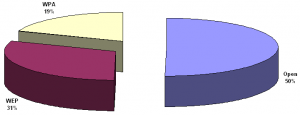 What: Workshop on Network Security by security awareness group “Null”
What: Workshop on Network Security by security awareness group “Null”
When: Sunday, 21st December, 10am to 1:30pm
Where: I2IT, Hinjewadi
Registration and Fees: This event is free for all. No registration required.
Details:
Null, a Network Security
group, is organizing an event on the 21st of December, 2008 at
International Institute of Information Technology, Hinjewadi, Pune.
The seminars which would be held are as below:
|
Time
|
Workshops
|
Speaker
|
|
10 AM – 10:30 AM
|
Introduction to Null
and Network Security
|
Mr. Aseem Jakhar
|
|
10:30 AM – 11:30 PM
|
Wireless Security
|
Mr. Rohit
|
|
11:30 PM – 12:30 PM
|
Application Security
|
Mr. Ajit Hatti
|
|
12:30 PM – 1:30 PM
|
TCP/IP and NMAP
|
Mr. Murtuja
|
Null is a Network Security community for ethical hackers, security
professionals and security enthusiasts, born out of the need for a centralized
knowledge base in security and the fact that security is treated as an add-on
and ignored many a times. It is a step to move towards immunity from security.
Apart from having fun, we also:
– Share security related knowledge
– Create a disclosure platform
– Design/Develop innovative ideas to combat current threats
– Define a “Must-Have” security knowledge-base for different roles (programmers, QA, admin, end user)
– Spread security awareness
– Organize Meetings/Conferences/Training
For further information:
– Contact: Mr. Aseem Jakhar ( giimale@gmail.com )
– Visit the website: http://null.co.in
Speakers
1. Aseem Jakhar (Founder: NULL security community)
A network security and open source enthusiast (and a system programmer
for living). He has contributed to the development of various security products
and networking/security modules including:
– Firewall
– Regex filters.
– Baysian filters.
– Heuristic filters.
– Genetic Algorithm based score generator for heuristic filters.
– Advanced attachment filters.
– Multicast packet-reflection daemon.
– SMTP engine.
– DNSBL engine.
Aseem is an active speaker at security/open source conferences like Blackhat
Europe 2008, ClubHack 2008, Gnunify 2007. He was also invited to speak at
Inbox/Outbox UK 2008. He is a C|EH from Ec-Council and is actively involved in security research. He has also given security advisories
to various organizations including banks.
2. Murtuja Bharmal (Co-founder – NULL)
Murtuja is a Linux Kernel and Network Security
maniac. Earning livelihood by working as a System Programmer. He has been
contributing in development of various Network Security
products like Firewall, VPN, Application Proxies, and Authentication
Modules for the past 5 years. Murtuja is a C|EH from EC-Council, is
actively involved in Security practices, development, consultancy, with
prestigious organizations. He has single handedly developed firewall product
and got it compliant with ICSA-Labs and also has expertise in
customization, security patching and integration of open
source products like SQUID, IPTables,
VRRP, and OpenSwan.
3. Rohit Srivastwa (Member – NULL)
Founder of ClubHack, has several years experience in providing consultancy and
training in the fields of Information security, Cyber Crime Investigation and Penetration Testing. He
is actively involved advising and teaching several military agencies, law enforcement
personnel, Corporates and Government bodies in these fields
4. Ajit Hatti (Member – NULL)
Ajit Hatti is a “Software Architect &
System Programmer” by profession and “Network Security, Linux Enthusiast”. From last 4 years he has been
contributing in research & development of security products like
IPS/UTM/Mail Security & Network Scanners with various renowned
Organizations. Ajit is also actively contributing in vulnerability research of
various protocol implementations and has been researching on modern techniques
of Fingerprinting & Application/OS detection. Ajit is also associated with
PLUG, CSI, and Ubuntu’s development and testing.

![Reblog this post [with Zemanta]](http://img.zemanta.com/reblog_b.png?x-id=d01c59f6-291e-45f7-b597-b3e326a85e2b)

![Reblog this post [with Zemanta]](http://img.zemanta.com/reblog_b.png?x-id=f7a5e8dd-413f-45cd-96f4-a6c5bf029e0f)

